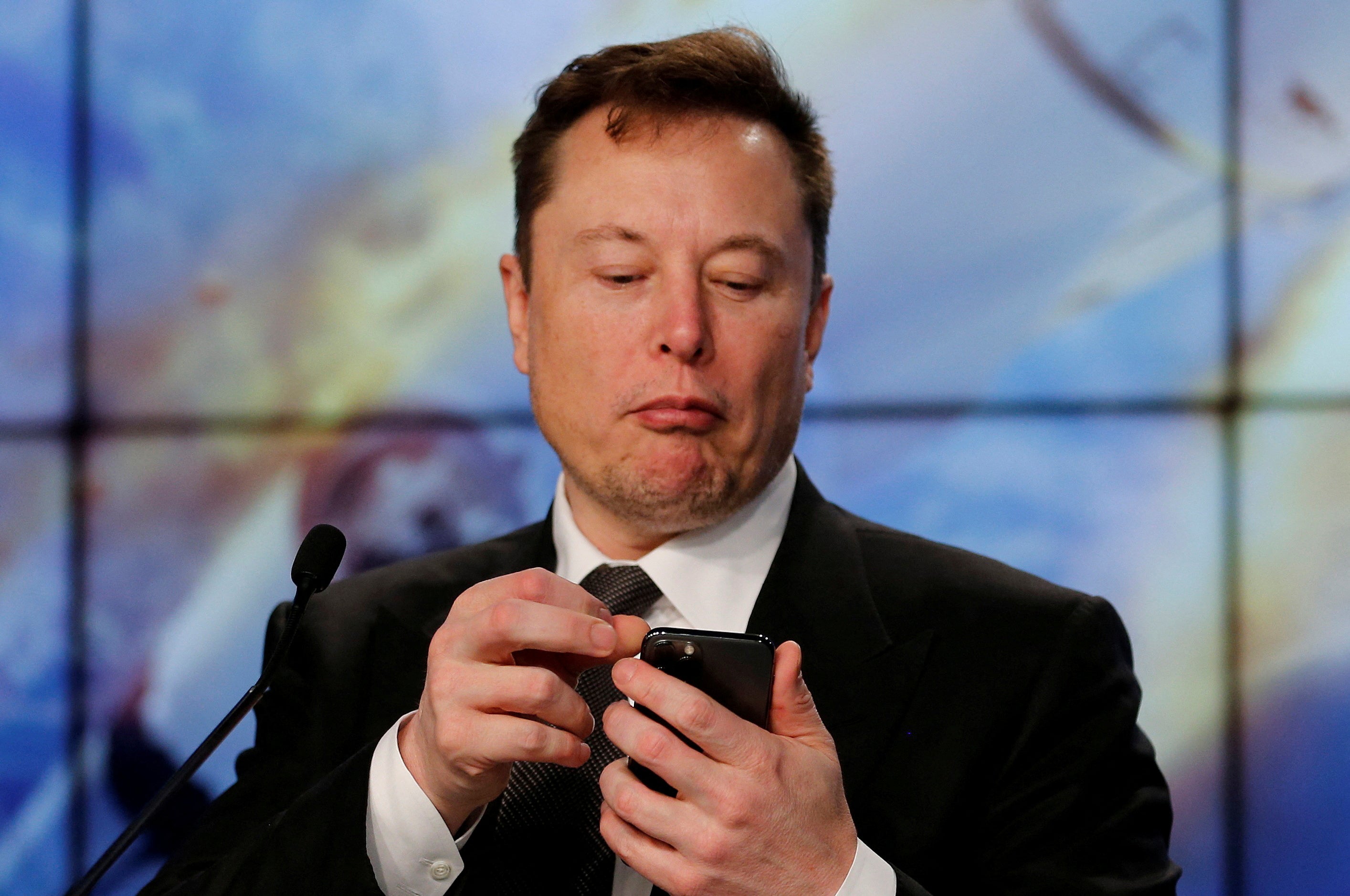Elon Musk says ‘I’m rubber, Twitter’s glue’ after social media company ‘blames’ him for declining revenue
Twitter is currently suing Musk as he attempts to walk away from his $44bn bid to buy the company

Your support helps us to tell the story
From reproductive rights to climate change to Big Tech, The Independent is on the ground when the story is developing. Whether it's investigating the financials of Elon Musk's pro-Trump PAC or producing our latest documentary, 'The A Word', which shines a light on the American women fighting for reproductive rights, we know how important it is to parse out the facts from the messaging.
At such a critical moment in US history, we need reporters on the ground. Your donation allows us to keep sending journalists to speak to both sides of the story.
The Independent is trusted by Americans across the entire political spectrum. And unlike many other quality news outlets, we choose not to lock Americans out of our reporting and analysis with paywalls. We believe quality journalism should be available to everyone, paid for by those who can afford it.
Your support makes all the difference.Elon Musk has said that he is “rubber” while Twitter is “glue”, in what appears to be a dismissive response to the social media company’s statement about him in its announcement of its quarterly results.
Twitter’s revenue decreased by 1 per cent in its second quarter, “reflecting advertising industry headwinds associated with the macroenvironment as well as uncertainty related to the pending acquisition of Twitter by an affiliate of Elon Musk”, said the company.
Subscription and other revenue totalled $101m (£84m), a decrease of 27 per cent year on year, while net loss was $270m (£225m), representing a net margin of minus 23 per cent.
“Given the pending acquisition of Twitter by an affiliate of Elon Musk, we will not host an earnings conference call, issue a shareholder letter, or provide financial guidance in conjunction with our second-quarter 2022 earnings release,” Twitter said.
Regarding the purchase itself, Twitter said that “representatives of Mr Musk delivered a notice purporting to terminate the merger agreement. Twitter believes that Mr Musk’s purported termination is invalid and wrongful, and the merger agreement remains in effect.” The company has commenced litigation against Mr Musk, and an expedited trial was granted to it earlier this week, scheduled for October 2022.
“The exact timing of completion of the merger, if at all, cannot be predicted because the merger is subject to ongoing litigation, adoption of the merger agreement by our stockholders and the satisfaction of the remaining closing conditions,” it said.
In response to Twitter “blaming” Mr Musk for the fall in its earnings, Mr Musk replied: “I’m rubber, they’re glue”. This appears to have been a reference to a playground retort that rejects an accusation and applies it instead to the party making it.
The saga behind Mr Musk’s purchase of Twitter began when Mr Musk bought 9.2 per cent of the company, which is worth almost $3bn (£2.3bn), on 4 April 2022.
The following day, Mr Musk said he would join the company’s board. After six days, Mr Musk reversed his decision, before making an offer to buy the entire company on 14 April.
However, in May, Mr Musk began raising questions about the number of bot accounts on the platform – despite having stated in the April press release that he was purchasing Twitter in order to deal with the spambots.
Twitter filed to sue Mr Musk last week, arguing that the tech billionaire is legally bound to carry out his $44bn acquisition of the social network.
Twitter argued that leaving the deal now would be “invalid and wrongful”, and said that Mr Musk “apparently believes that he – unlike every other party subject to Delaware contract law – is free to change his mind, trash the company, disrupt its operations, destroy stockholder value, and walk away”.
Mr Musk has claimed that his reason for walking away from the deal is that Twitter did not give him information about fake accounts and spambots on the platform.
“Twitter has failed or refused to provide this information. Sometimes Twitter has ignored Mr Musk’s requests, sometimes it has rejected them for reasons that appear to be unjustified, and sometimes it has claimed to comply while giving Mr Musk incomplete or unusable information,” Mr Musk’s attorney said in a letter to the Twitter board.
Twitter subsequently filed with the Delaware Chancery Court. Mr Musk replied to the news via a tweet: “Oh the irony lol”.
It is unclear who will come out victorious in this case, but if Mr Musk loses it seems unlikely that he will be able simply to walk away from the deal without paying a penalty.
Should Mr Musk refuse to buy Twitter despite being ordered to by a judge, he could be held “in contempt and set a daily fine until he complies”, Brian Quinn, a Boston College law professor who teaches about the law relating to mergers and acquisitions, told Bloomberg. “For Musk, that would have to be a rather large number.”
Tesla, which is owned by Mr Musk, is also a Delaware corporation, which would give the court the power to go after Mr Musk’s stock options. However, such a scenario is unprecedented.
Join our commenting forum
Join thought-provoking conversations, follow other Independent readers and see their replies
Comments